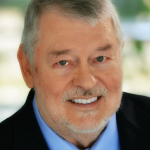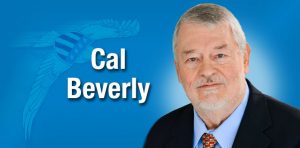“The single most important thing a city can do is provide a community where interesting, smart people want to live with their families.” — Malcolm Gladwell
Author Malcolm Gladwell provides a superb evaluation of what we should expect from a city of any size. Obviously, not all cities are alike and an elite few manage to create conditions where the quality of life is the purest pollen that attracts those select citizen pollinators who create the honey of civic success.
Let’s keep in mind that the fortunate cities that manage to ascend to the ranks of sought-after communities can also find ways to lose it all.
Different entices, different is beneficial
Peachtree City began under the inspiration of not wanting to emulate the run-of-the-mill style of suburban development occurring rapidly across the United States.
In my previous column, I explained how a young European enthralled with the “garden cities” movement in the United Kingdom named Walter Hunziker sparked the imagination of Georgia entrepreneur Pete Knox, Jr. and how his impulse purchase of local land led to ten thousand-plus acres of old cotton land in a county known for bootlegging becoming one of the top ten places to live in the United States decades later.
For reference, most of the rapid development in metropolitan Atlanta was occurring adjacent to the interstate highways. The country was following President Dwight D. Eisenhower and his “Grand Plan” to bolster national logistics and the economy with the assistance of the Federal-Aid Highway Act of 1956. Peachtree City is not adjacent to an interstate highway, perhaps seen as an impediment back in the day, but ending up being a considerable advantage.
Pete Knox, Jr. chose the location for Peachtree City because the land was cheap, plentiful, and available for purchase. Knox’s real estate partner Tom Cousins mentioned to me about purchasing some parcels as low as $50 per acre. The distance from the interstate highway system made conditions for assembling the land favorable. That distance, however, would also make it more difficult to attract potential homeowners and businesses.
While the north side of metro Atlanta was busting loose with new real estate development, things were just barely moving in freshly chartered Peachtree City.
From a purely strategic point of view, the monumental idea of building a city from scratch in our current location in the late 1950s was fraught with risk and uncertainty. Market conditions seemed to be heading in the opposite direction, and there was a possibility that Knox had bitten off way more than he could chew.
Despise (verb) – feel contempt or a deep repugnance for
The old-time Fayette Countians looked at the upstarts in Peachtree City with great suspicion and scorn.
The officials in the City of Fayetteville did not like the competition and they were not afraid to voice their displeasure. There was a high degree of the old southern courtesy of saying that they wanted to see Peachtree City do well but meaning never better than them.
The Fayette County Board of Commissioners showed no willingness to help the newest city get off to a good start. There was already a kind of east-west divide in the county before Peachtree City came along.
Lifelong Fayette County resident and former Atlanta Journal-Constitution editor Jim Minter said the western side of the county was once “regarded as a wild frontier populated by rough and tumble folks partial to whiskey and fighting.” He described Peachtree City as being “populated by sophisticated immigrants who look down on Fayetteville and environs.”
Fayetteville doctor and politician Ferrol Sams (1923–2013), son of a cotton farmer, had noted to the Atlanta press that an influx of non-Fayette Countians, especially from north of the Mason-Dixon line, could cause occasional tension, but “the Yankees left their matches at home this time.”
January 5, 1959 – Get the ball rolling
The meeting minutes reflect that Knox’s first employee, Joel H. Cowan, the college kid, was sworn in as mayor by the local notary public and Redwine Bank manager W. Floy Farr (1912–2006).
The oath was administered, “I, Joel H. Cowan, do solemnly swear that I will well and truly perform the duties of Mayor by adopting such measures as in my judgment shall be best calculated to promote the general welfare of the Inhabitants of Peachtree City and the common interest thereof, so help me God.”
R. H. Huddleston, R. Hugh Huddleston, John E. Robinson, and J.A. Pollard were sworn in as the City Councilmen.
For the Cowan family, it was all hands on deck, and the city clerk duties were assigned to “Mrs. Joel H. Cowan.” Mrs. Cowan was also appointed the “ex officio tax commissioner and tax receiver” for the city.
This was the equivalent of taking a car out on a cross-country adventure without ever learning how to drive. How do you start the thing? How do you maintain the vehicle? And what exactly are the rules of the road?
Communication with the entire city government was easy. All you needed was the Cowans’ home phone number.
The only other meeting business was the mayor notifying the U.S. Postal Service that they need to establish a Peachtree City mailing address and find out how to create a Georgia Power franchise agreement for the city. The city requested that Coweta-Fayette EMC vacate the city and sell its infrastructure to Georgia Power.
It was a total blank slate. There were some ideas, build a lake, layout plans for subdivisions, maybe a golf course, and figure out how to attract residents and businesses. Any new schoolchildren would have to be bused to Fayetteville for classes.
Failure is always at the doorstep
As noted in my previous column, Pete Knox, Jr. was not a risk-averse person and his alcoholism seemed to help that along. It was one thing to arrange a massive real estate deal and set up a city charter, but it was another thing entirely to build a city out of farmland with few roads, little in the way of utilities, and no one to tax to produce the infrastructure (no taxes were levied in 1959). Adding to those woes, developers were not building much on the south side of metro Atlanta, and no one knew the city existed.
Financial collapse was a real possibility, and the restless local farmers could have foreclosed on lack of payment, shutting the whole thing down.
It was at this point that a lifeline provided courtesy of global financier J.P. Morgan (1837–1913) and American industrialist Andrew Carnegie (1835–1919) came gloriously rushing in like the U.S. Calvary to save the city we now refer to as the “Bubble.” Trust me, you cannot make this stuff up. No one would believe you.
More on that next week in The Citizen.
[Brown is a former mayor of Peachtree City and served two terms on the Fayette County Board of Commissioners]











Leave a Comment
You must be logged in to post a comment.